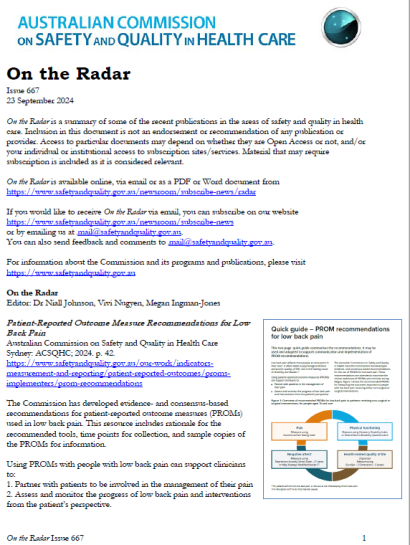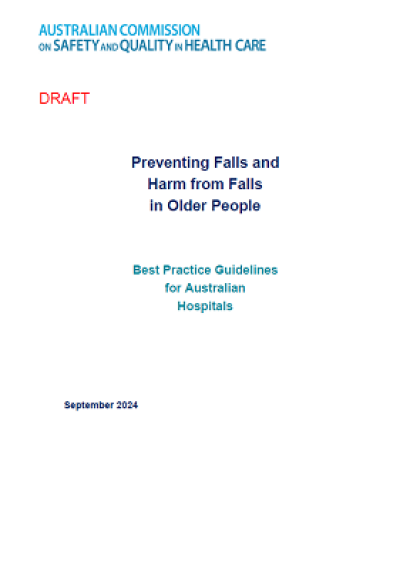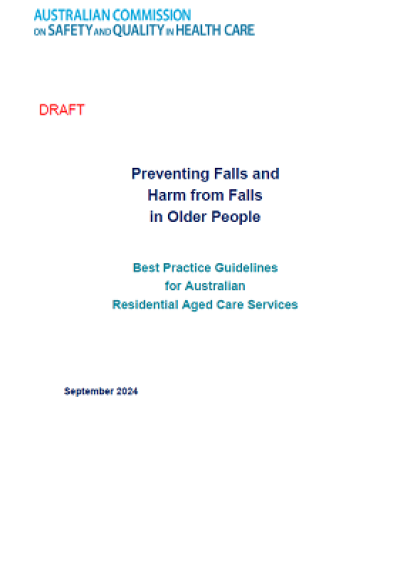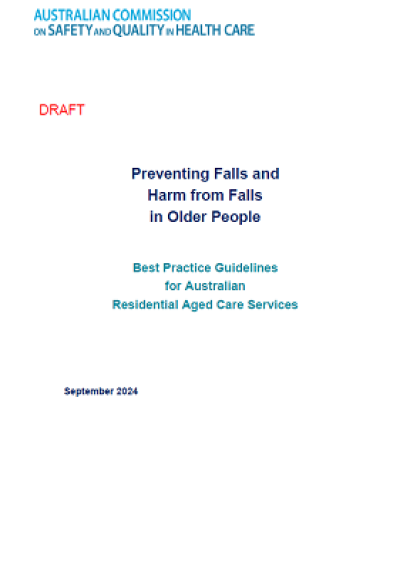This issue includes items on patient reported outcome measures (PROMs), low back pain, the forthcoming launch of the Chronic Obstructive Pulmonary Disease (COPD) Clinical Care Standard, diagnostic safety, telehealth, mental health, medication safety, antimicrobial resistance, artificial intelligence (AI), COVID-19 and more. Also covered are the latest from BMJ Quality & Safety, HealthcarePapers and the latest from the USA’s AHRQ.
The Australian Commission on Safety and Quality in Health Care has signed a Joint Statement: 'Working together to achieve sustainable high-quality health care in a changing climate', in a shared commitment with the interim Australian Centre for Disease Control, all specialist medical colleges and the Australian Indigenous Doctors’ Association to address the health impacts of climate change.
The Preventing Falls and Harm from Falls in Older People: Best Practice Guidelines for Australian Hospitals (Falls Guidelines for Hospitals) is a support resource based on the Falls Guidelines for Hospitals Reference Document. They will be published as part of a suite of resources.
This document is in draft. Public consultation on the Falls Guidelines closed on 20 November 2024.
The Preventing Falls and Harm from Falls in Older People: Best Practice Guidelines for Australian Community Care (Falls Guidelines for Community Care) is a support resource based on the Falls Guidelines for Community Care Reference Document. They will be published as part of a suite of resources.
This document is in draft. Public consultation on the Falls Guidelines closed on 20 November 2024.
The Preventing Falls and Harm from Falls in Older People: Best Practice Guidelines for Australian Residential Aged Care Services (Falls Guidelines for RACS) is a support resource based on the Falls Guidelines for RACS Reference Document. They will be published as part of a suite of resources.
This document is in draft. Public consultation on the Falls Guidelines closed on 20 November 2024.
The Commission has revised three Diagnostic Imaging Accreditation Scheme (DIAS) advisories.
Public consultation on the Falls Guidelines closed on 20 November 2024.
You are invited to the online launch of the first national Chronic Obstructive Pulmonary Disease Clinical Care Standard.




